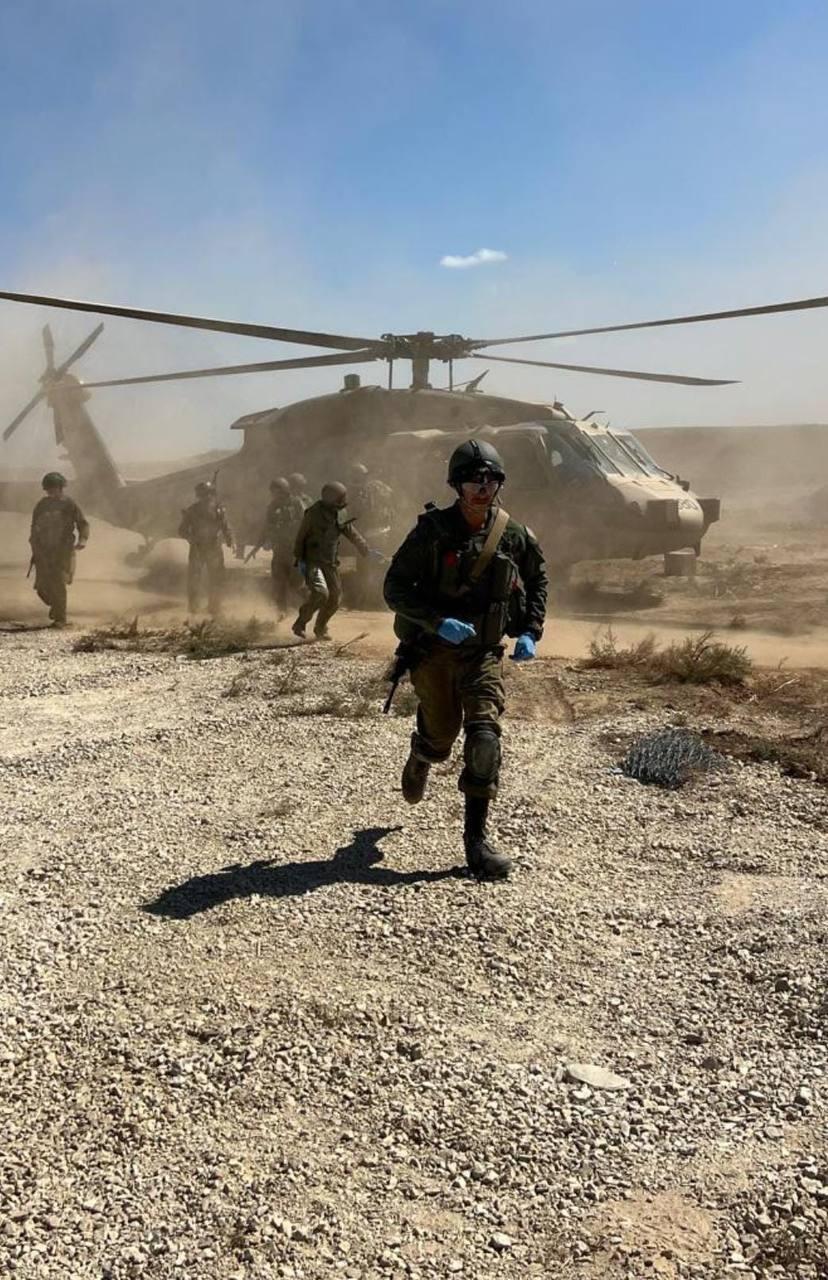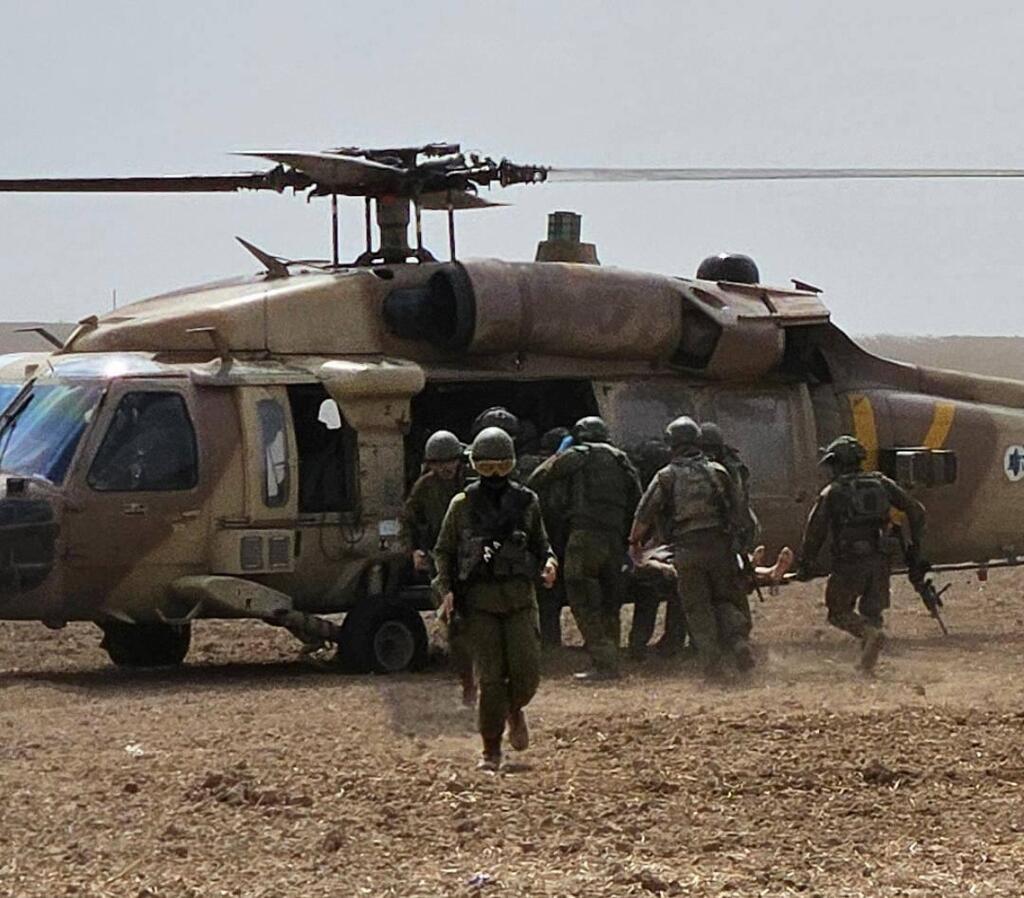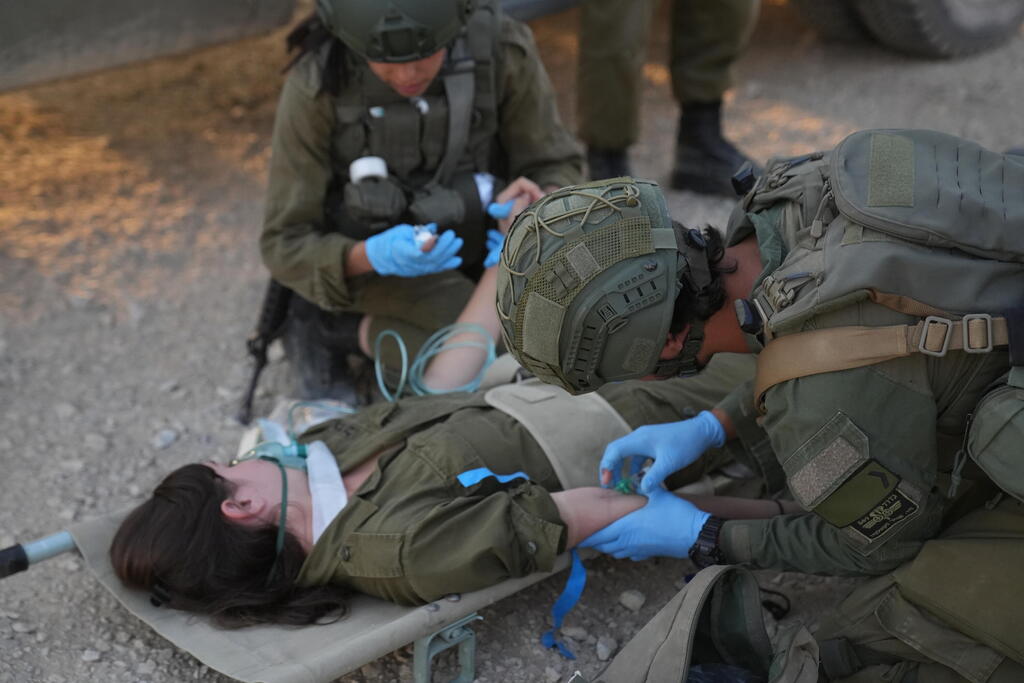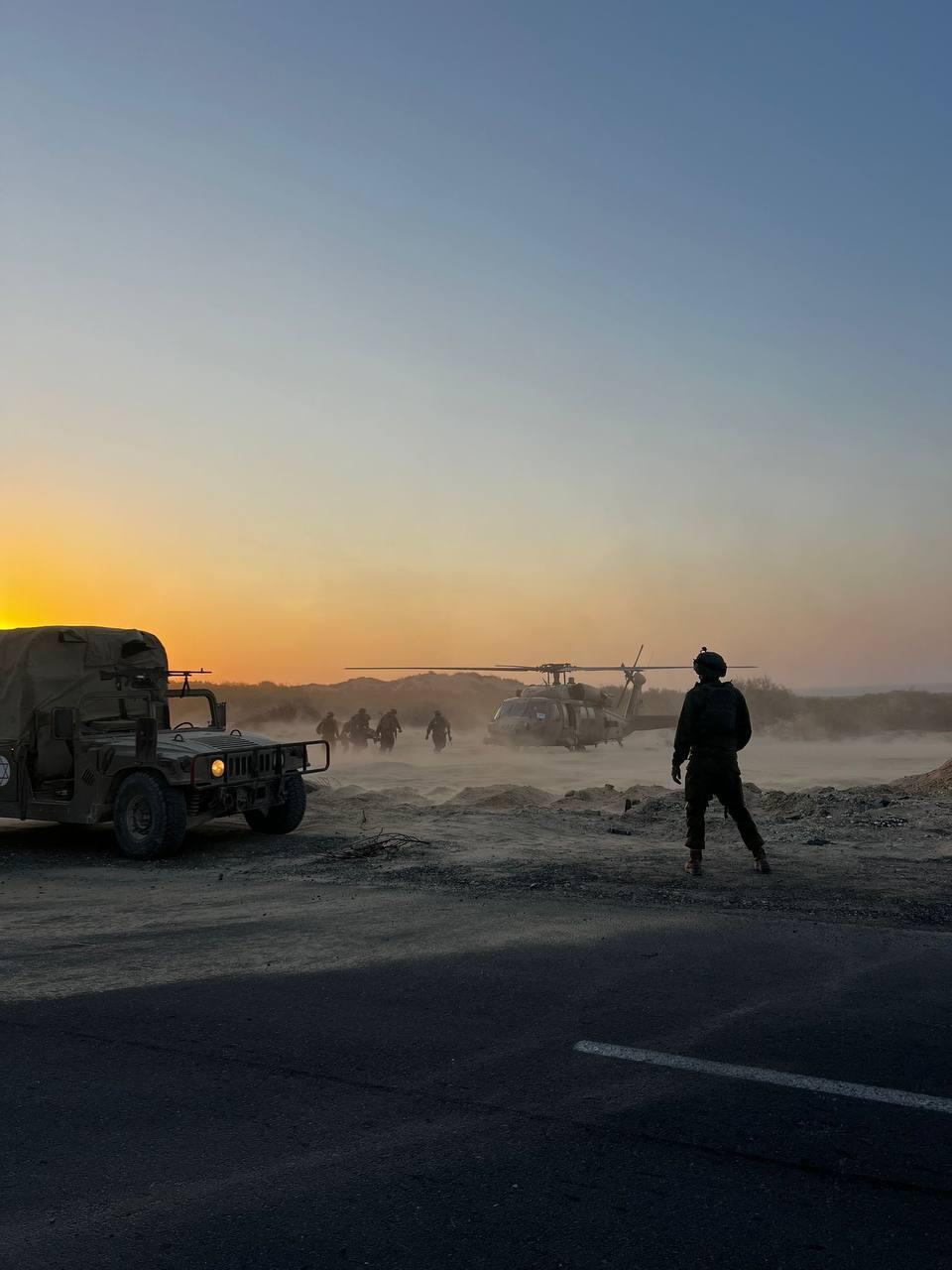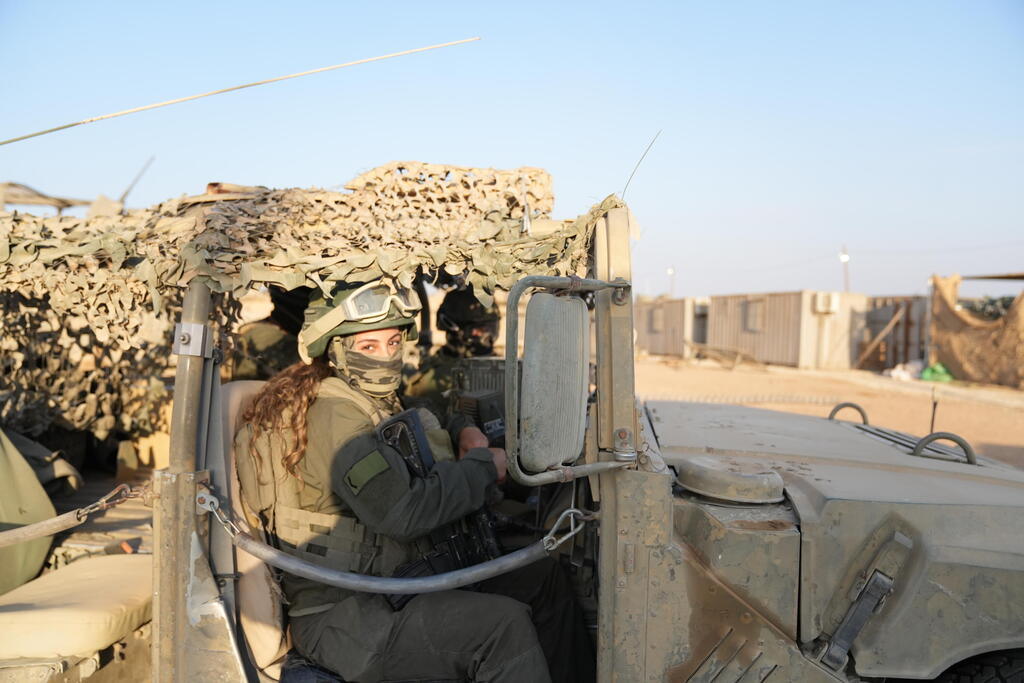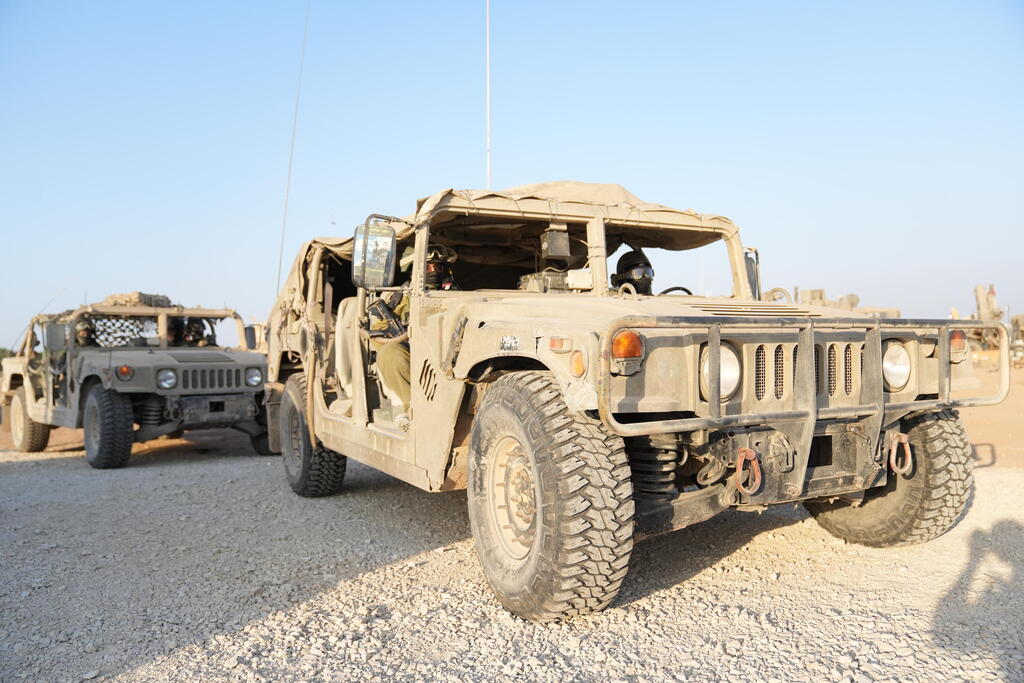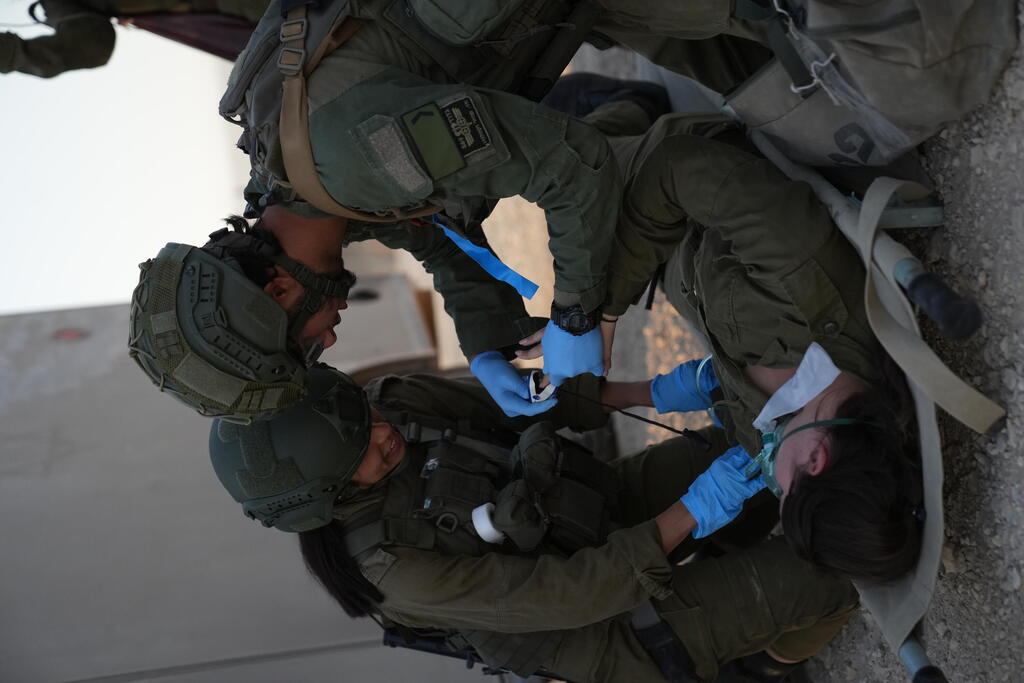Getting your Trinity Audio player ready...
For over a year, a large regional IDF medical unit composed of doctors, medics and soldiers has operated along the Gaza border, treating casualties from combat zones.
The unit has performed thousands of medical treatments, conducted hundreds of air evacuations and saved numerous lives. Yet, its members have also faced the somber task of handling the remains of fallen soldiers, including Col. Ehsan Daxa, who was killed in Jabaliya last month.
Evacuation of soldier wounded in action in Gaza
(Video: IDF)
Amid their intense duties, the hostages held in Gaza remain a central concern. "Our dream is to have a hostage brought to us so we can treat them after they’re rescued," said Maj. (res.) Dr. Aviv Shaul, the unit’s commander. In civilian life, Dr. Shaul is a senior cardiologist at Rabin Medical Center.
A symbol of hope stands within the unit’s shaded courtyard—a single yellow chair bearing a photograph of hostage Romi Gonen. Despite the chaos of emergency evacuations, soldiers say the chair has never been accidentally knocked over.
Stationed along the Gaza border, the unit manages patients who cannot be airlifted from the field, as well as those with minor injuries. Unlike most IDF units, Aviv’s unit performs multiple roles: stabilizing critical injuries, transferring patients to hospitals, providing physical and psychological care for soldiers returning to battle and ensuring security for the unit.
"This chair reminds us of what we’re fighting for," one soldier said. "It’s not just about treating the wounded—it’s about bringing everyone home."
'When we succeed, it’s immensely satisfying. When we don’t, it’s devastating'
The Gaza Division has deployed eight regional evacuation units, comprising 1,300 reservists, since the war began. Over the past 14 months, these units have conducted more than 2,500 evacuations, including around 350 by helicopter.
"We often encounter cases where soldiers with severe injuries, initially treated in the field, cannot be airlifted out of Gaza," said Maj. Shaul. "Our goal in critical cases is to stabilize them for transport. When we succeed, it’s immensely satisfying. When we don’t, it’s devastating."
He added that his unit has experienced the loss of patients, sometimes en route to the hospital and other times during preparation for evacuation. "When there’s even the slightest chance to save someone, we do everything we can," he said.
Shaul, who has been in the field for months, recounted witnessing at least two mass-casualty events. "One of the most memorable was toward the end of the intensified combat phase," he said. The incident occurred on the unit's first day on the line, while they were still training, when a force from the 460th Armored Brigade was ambushed in Jabaliya.
The attack killed Col. Ehsan Daxa, commander of the 401st Armored Brigade, and severely injured the 52nd Battalion commander, along with two other officers who sustained moderate to minor injuries.
Shaul, visiting one of the unit's two helicopter landing zones, joined his soldiers in treating the wounded. Despite their efforts, Daxa could not be saved, but his subordinates survived.
"The harrowing scenes from that incident, like others we've encountered, stay with us," Shaul said. After such events, personal and group counseling sessions are arranged for the unit with the division’s mental health officers.
"I’ve had soldiers tell me, 'I’ll never forget the eyes of the soldier who died during treatment,’" Shaul said. "Handling the fallen is particularly grueling. These are not easy images to process, so we ensure doctors, medics and soldiers receive the emotional support they need."
Mental well-being is key
The psychological well-being of wounded soldiers is a critical focus alongside their medical treatment, said IDF Master Sgt. (res.) Guy Alter, a medic in one of the evacuation units stationed near Gaza.
"The physical treatment is essential, but we also address the mental state of the soldiers who come to us," he explained. "Many have been inside Gaza for months, and it’s important to reassure them—if they’re conscious—that despite the trauma of their injury, they are now in a safe place."
One key method, Alter said, involves connecting wounded soldiers with their families whenever possible. If the soldier can speak, they’re encouraged to call home and inform their loved ones of their condition. "This serves multiple purposes," he noted. "It stops rumors, reassures families that their loved one is receiving proper care and comforts the soldier by giving them a sense of home."
This psychological care is provided alongside the medical treatment, with the goal of stabilizing and evacuating the wounded to hospitals such as Barzilai or Soroka, either by helicopter or ground transport. Alter added that lightly wounded soldiers are often treated and returned to their units whenever possible.
"Many of the soldiers we see are eager to rejoin their comrades, regardless of their injuries," Alter said. "It’s inspiring and fills us with pride, but sometimes we have to appeal to their logic to ensure they don’t jeopardize their recovery."
Alter, who also served as a medic during Operation Protective Edge in 2014, believes the military has improved its approach to treating the wounded since then. "The troops fighting in Gaza today are better protected, the operations are more sophisticated and they are exercising greater caution," he said. "To be honest, I expected to see more casualties. Thankfully, that hasn’t been the case."
'Unfortunately, we’ve handled many fallen soldiers'
At the IDF's Gaza border medical base, three ambulances are always on standby, each staffed by a doctor and medics. These ambulances are accompanied by armored Humvees carrying soldiers tasked with securing the medical team operating dangerously close to the combat zone.
Coordinating between the security and medical teams is Capt. Jazz Regan, a 26-year-old reservist. "For each incident, we decide how many ambulances and Humvees to deploy," Regan explained. "The medical team’s role is to provide treatment, while the soldiers ensure security, coordinate with evacuation helicopters, and relay the condition of the injured to hospital teams."
Get the Ynetnews app on your smartphone: Google Play: https://bit.ly/4eJ37pE | Apple App Store: https://bit.ly/3ZL7iNv
Although her unit has not faced direct attacks during medical operations, Regan emphasized the importance of readiness. "Every deployment involves body armor and helmets, even though we’re operating on the Israeli side of the border. It might seem excessive, but it’s essential for safety," she said.
Regan has managed dozens of incidents during her extended reserve duty. "Unfortunately, we’ve handled many fallen soldiers, and some of their comrades serve in our unit, which makes it emotionally challenging," she said. She recalled evacuating a commander killed in combat early in the war. "His body was in Gaza for two days before we could recover it. It was tough, but we managed to bring him back so his family could give him a proper burial."
Recently rotated out from the front lines, Regan and her team faced several harrowing cases in their final days, including a Givati Brigade soldier with a severe head injury. "He was conscious, but the wound was difficult to see. We performed life-saving procedures before transferring him to a hospital," Regan recounted. In another incident, her team stabilized a wounded soldier outside their assigned sector before he was airlifted for treatment.
A former commander in the Caracal Battalion, Regan highlighted the role of female combatants in the war. "Here in the unit and across the board, we’re proving that women can do everything men can, with the same motivation and determination," she said.
"Hearing female paramedics in Gaza coordinate evacuations brings a smile to my face. It’s a message that should be shared widely: women are capable and ready to lead and perform under the same demanding conditions."






